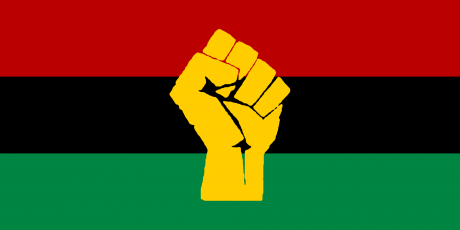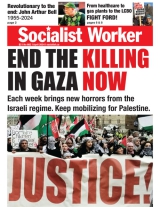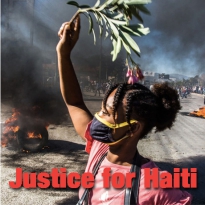Features
You are here
Black History Month: Colonialism, Liberation and Class conflict in Africa

February 25, 2020
Colonial Africa
Africa was colonized by the European powers in the nineteenth century by means of conquest and treaties. Colonial rule established limited infrastructure for the purpose of exporting raw materials; an administrative machinery was also set up to run the business of the colonial effort. The economy was organized around the production of raw material which was processed in Europe. Few skilled workers, and a large number of unskilled were employed for the extraction of the raw material. Capital was exclusively from Europe and profits were sent back there. Most of the white-collar work was in the civil services. The civil service employees were educated in schools established in colonial Africa set up by the Europeans.
Some were sent to study in the European colleges and universities for the purpose of carrying the colonial business. Police officers were trained, there were also local artisans, and merchants. The unskilled workers were migrants from the rural regions, who spent some time in the urban centres, and mostly farming in the rural areas. African soldiers were conscripted into the colonial army. Soldiers from Africa fought in the 1940s wars.
Trade unions were formed by the workers to fight for better wages for their members. Returning soldiers from the war found their hopes dashed under the colonial system. Trained civil servants wanted promotion and to not be bypassed. The militancy of the trade unions and political consciousness of the returning soldiers were catalysts in the fight towards independence.
Among the returning soldiers was Ahmed Ben Bella of Algeria. In 1945. The Fifth Pan African Congress demanded the end of colonial rule in Africa. The fight for independence and freedom commenced. The leaders of nationalist movements at this time were Kwame Nkrumah of Gold Coast (now Ghana), Jomo Kenyatta of Kenya, Julius Nyerere of Tanganyika (now Tanzania), Leopold Sédhar Senghor of Senegal, Félix Houphouët-Boigny of Ivory Coast, Ahmed Sékou Touré of Guinea, Gamal Abdel Nasser of Egypt, Habib Bourguiba of Tunisia, Ahmed Ben Bella of Algeria, Patrice Lumumba of the Democratic Republic of Congo.
Europe, exhausted by the wars of the 1940s, was willing to negotiate with the nationalists. However, where Europe was not willing, the road towards independence was long and bloody. Most of the bloody wars were in the settler areas like Algeria in North Africa and mainly in Southern Africa like the Portguese colonies of Mozambique and Angola. Here Agostino Neto of Angola and Samora Machel of Mozambique led revolutionary guerrilla warfare.
In Rhodesia where Ian Smith declared a Unilateral Declaration of Independence for the white settlers, African nationalists confronted the state and waged wars of independence known as Rhodesian Bush Wars; they adopted tactics employed by FRELIMO of Mozambique. In South West Africa opposition and fight against apartheid and racial segregation was started by trade unions, the Ovambo contract workers. In 1969, SWAPO (South West African People's Organization) led by Sam Nujoma began wars of independence against the South African regime and in1990 gained its independence – Namibia was born.
The Union of South Africa opposition to apartheid was led by the African National Congress (ANC) and the Pan Africanist Congress (PAC). In March 1960, police killed 69 people and injured 180 who were protesting against the pass laws in the township of Sharpeville. The government then banned the ANC and PAC. It detained about 18,000 protesters, including anti-apartheid leaders of the movement. In 1962 Nelson Mandela and other leaders of the ANC and PAC were arrested and exiled to Robben Island. In 1968, the Black Consciousness movement was born, led by Stephen Biko. By 1972 a wave of black workers’ strikes and rapid growth of trade unions was witnessed. The militancy of the trade unions and international economic sanctions led to the release of Nelson Mandela and those imprisoned with him, by F.W de Klerk in February 1990. South Africa became a country ruled by black majority together with other South-Africans in 1994. South Africa now has a non-racial constitution.
By 2019 there are 54 Independent African countries – with the exception of West Sahara and Somaliland, almost all Africa is free and independent.
Post-Independence Africa
From late 1950 to 1994, all African countries got their independence. There was a lot of jubilation and fanfare, and celebrations everywhere. For a short period, there were expansions of elementary schools in the rural areas, as well as health clinics and other social services. Some employment in the civil services helped people in the urban areas. Governments improved the infrastructure.
This did not last long: cash and capital-strapped Africa was not able to continue this endeavour. The IMF and World Bank stepped in and offered loans on condition that Western corporations would have free access to natural resources of African countries. African governments were asked to privatize their economy and open to international trade. They were forced to adapt to what is called Structural Adjustment Programs (SAP).
These loans did not solve African woes – in fact they exacerbated them. It was the cause of one of the economic problems we see today. Farmers who got government subsidies were cut off from these grants; they were unable to compete with Western farmers who were subsidized and exported crops that Africans produced. African farmers are not able to compete. They have to abandon farming the crops they used to farm. They were impoverished by the trade liberalization of IMF and World Bank.
Masses in Africa began demanding for improvement of their conditions, they wanted wage increases, and reduction of the privileges of the elites. The elites in Africa are composed of those Western-educated civil servants as well as military and police officers during the colonial era. There are merchants and traditional leaders who got some privileges and are part of the elite today. These groups form a cohesive class of their own.
Of course, disagreements do exist; military generals stage coups d'état in the name of fighting corruption and take power. There are many cases of this in Africa. The elites, rather than meet the demands of their people, repress them by force. They are not willing to give up their privileges and do not want to share the wealth. This led to class conflicts in post-independence Africa. Militant trade unions protest and strike. Recent mass struggles deposed dictatorial rule in Algeria and Sudan.
Sudan is a good case of how recent struggle shows the way forward for the people of Africa. Sudan gained its independence from Britain in 1956. In 1958 General Ibrahim Abboud overthrew the elected government. Civil war started in the south – this was the start of the separatist movement called the ANYA NYA movement (the south is now an independent country). In October 1958, a general strike spread in the country. The government of Mohamed Ahmed Mahjoup was overthrown on May 25, 1958 by a military coup d'état led by General Gaafar Nimeiry.
In 1970 a briefly successful communist-led coup took place. But anti-communist elements in the army restored Nimeiry to power. Nimiery was overthrown in 1985 and replaced by a Transitional Military Council. Following an election, Sadiq al-Mahdi became the Prime Minister of Sudan in 1986. The elected government of Sadiq al-Mahdi was overthrown in 1989 by a general in the army. This was Omar al-Bashir who ruled and became a dictator for 30 years. His regime was oppressive and carried out the genocide in Darfur. But the people of Sudan couldn't accept his oppressive and exploitative regime: he was deposed in a massive civil uprising in April 2019. The revolution was preempted by members of the old guard who have taken power and immediately taken measures to suppress the mass movement by force.
People's resistance continues in the Sudan..
Section:










